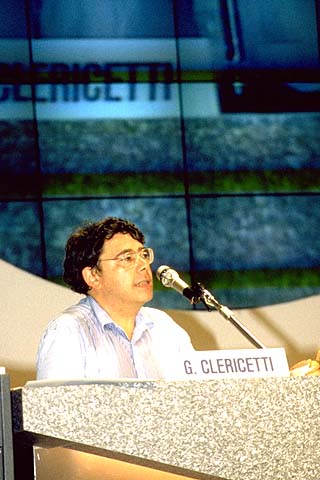A laughable job
‘Paradox is a means of presen-ting a truth by making it appear to be in contrast with a normal way of reasoning, but with a lo-gic so convincing that it surpri-ses, provokes and induces re-flection upon or even revision of the automatic acceptance of things always taken for granted or unknowingly assumed. When a smile, sardonic or assu-med, is the result, the paradox is transformed from an instru-ment of rhetoric into a technique of humour. ‘Though this be madness, yet there is method in it’, remarked Polonius when fa-ced with the faked dementia of Hamlet, and the same might be said of the work of the humorist. Starting with a natural and in-stinctive ability to note incon-gruencies which abound in things, events, people, words and ideas, the humorist refines his sensitivity and masters tho-se mechanisms of observation and reproduction which allow him to exploit with ease the ‘funny side’ of life, or to invent it by means of parody. The exhibition, which features a broad cross-section of Clericet-ti’s enormous production in 25 years as a cartoonist, designer, author and writer for television and radio, offers an opportunity to enter the world of a profes-sional humorist and discover both “madness” and ‘method’ in the originality of the creativi-ty, the modes of expression, the capacity for astonishment and mastery of language which ma-ke up that world. Designs, aphorisms, distraction and cartoons are divided into three separate but interdepen-dent areas in Clericetti’s work. The first area, more personal and private, is the game of rea-lity, pure humour, often only vi-sual, sometimes with sly or en-tertaining poetical intuitions; the second area is the good -humoured but pungent observa-tion of humanity and of the life of society, and ironic but affectionate mirth which becomes pointed social satire; and the third area, certainly the most well known, is that of political satire, where humour borders on indignation and criticism of the structures of power and of do-minating untruths. This is no sterile joke, but much rather judgement and confrontation, progressing from a secure con-ception of values and reality ba-sed on belonging and the expe-riences of real life, to a more ge-neral and ample collective histo-ry.’











